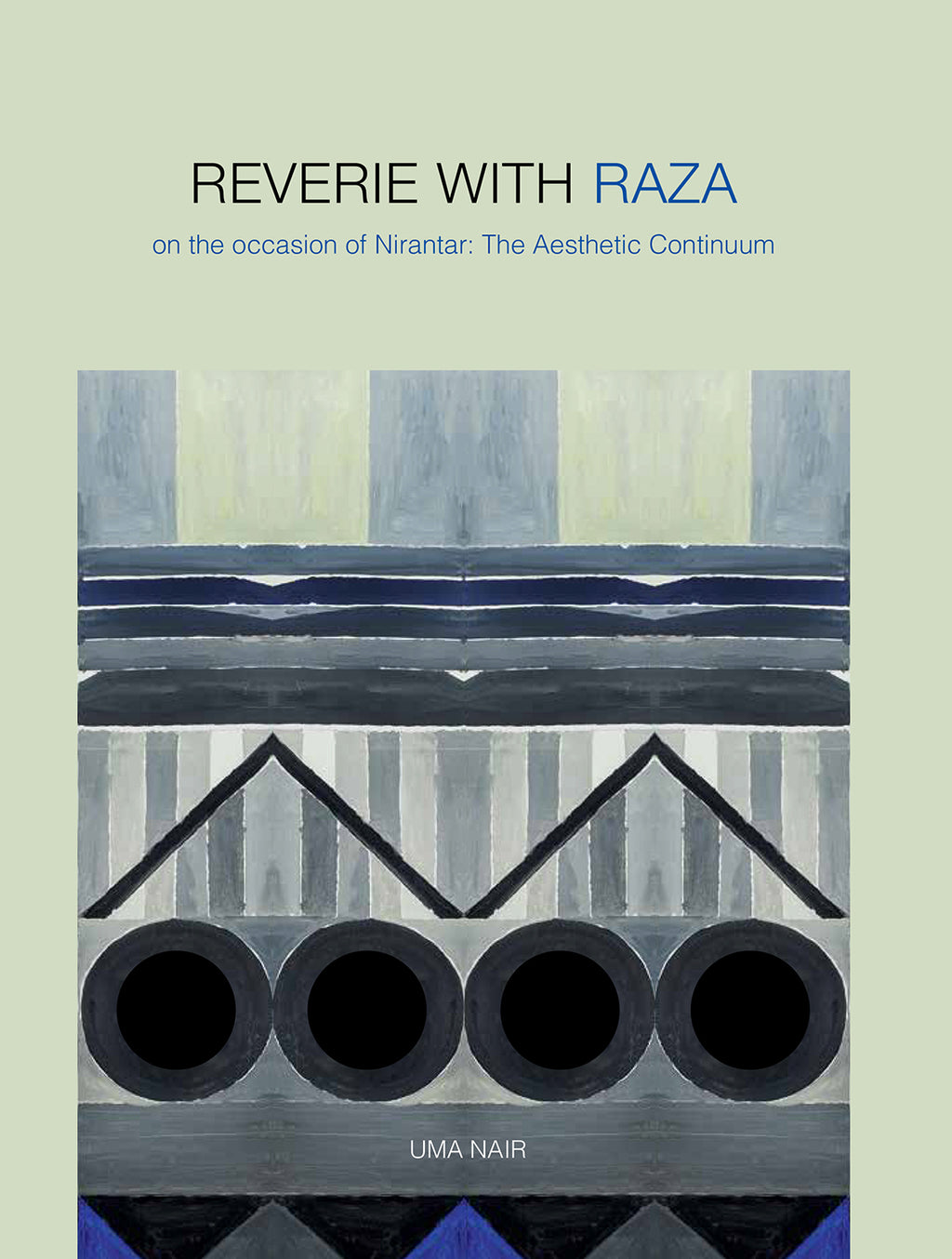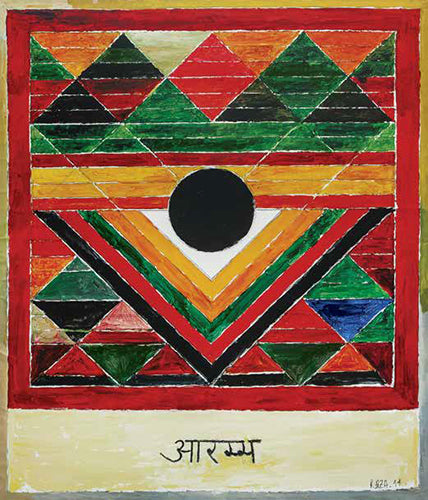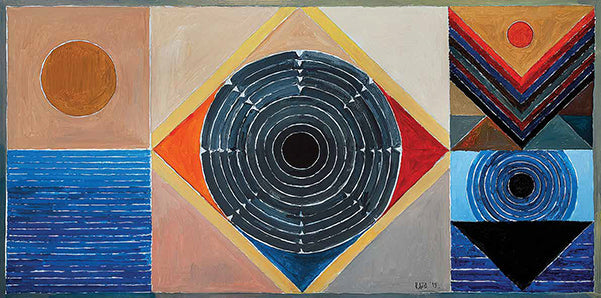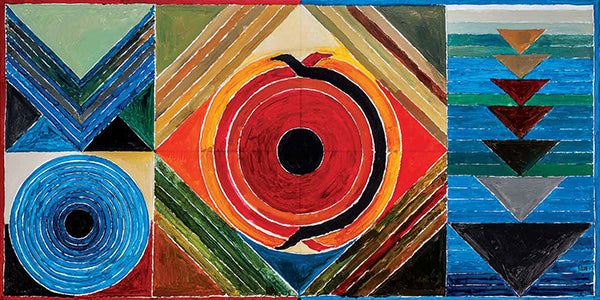Reverie with Raza
On the Occasion of Nirantar: The Aesthetic ContinuumIn an age where contemporary art has changed in mediums and language, scope and intent, this book weighs in on the moodiness, methodology, efforts, mental blitzkriegs and inner workings of modern master of art Sayed Haider Raza.
- Category: All Books, Contemporary Art, MAPIN20
about contemporary art. Living now in Delhi, Raza is going through a revolution in which he is bringing back his past in his works—he is ploughing the depths of past trends in his use of colour fields, in contextualizing genres
in his journey of the ‘Bindu’ and explaining intuitive strategies that reflect his journeys. Looking at Raza’s art is an intimate act of prolonged engagement. The Bindu too has transformed through decades—it signifies a
different tenor in a world torn by terrorism and death.
In tone and technique Raza is meticulous, historically informative, and has a sensitive yet straight-eyed approach that often takes the form of a discourse that invites cogent considerations; his reflections of spirituality and his favourite poets Rilke and Kabir build up into a flashback tinted in-your-face reflection that might involve the desire to dig deeper into his quotations.
Nevertheless, in his own specific way, Raza brings to his own works that essential recipe of criticism illustrated in essence with his own brand of expertise and taste. When he discusses his works done over the past two years, he travels through verbal and visual dynamics, and gives us a set of references and details that define his sensibility that brims to an inner core of intellectual and aesthetic insignias. In his twilight years, Sayed Haider Raza unravels as a modern master who comes through more like a sage who swims in the fervour and ferment of thoughts shaped by 60 years in Paris as well as formative years in India.
Writing for nearly three decades on contemporary Indian art can chisel one’s thoughts and provide an arsenal that brims on the volume and power of memory. Having penned reviews and observations for major newspapers like The Economic Times, Hindustan Times, and The Asian Age, Uma Nair believes no writing can happen without research.
Nair’s monograph on Arpita Singh’s Wish Dream was penned as far back as 2005 but published by Saffronart in 2010. Nair’s admiration for Sayed Haider Raza goes back two decades when he would visit India during winter months and be part of solo showings. In an art world obsessed with the human figure and art writing in media reduced to barefoot journalism, Nair feels abstraction needs to be studied with a certain cerebral absorption. A lot of abstraction in India has been reduced to wanton colour strokes with no depth and nearly absent experience. Nair’s notes on Raza span nearly two decades and she was able to pick and preen into his past through the prism of the present.
Nair believes that curating too is an exercise that must go beyond the books and walls. It must invite bouquets and brickbats, it must probe the darker secrets of an artist’s sensibility. Nair’s most important curatorial venture has been with the Lalit Kala Akademi in a show called ‘Moderns’ that has been sent to Jordan, Berlin and Vienna. She is currently researching the archives of the Lalit Kala Akademi in New Delhi.
| ISBN | 9789385360152 |
| Pages | 136 |
| Number of photographs | 2 photographs |
| Number of illustrations | 104 colour illustrations |
| Size | 6.7 x 9" (170 x 229 mm), hc |
| Date of Publishing | 2016 |
| Language(s) | English |
| Co-publisher(s) | Mapin in association with Akar Prakar and The Raza Foundation |
| Rights Available | World rights |










